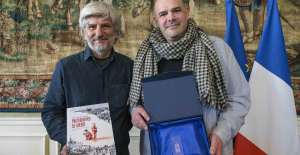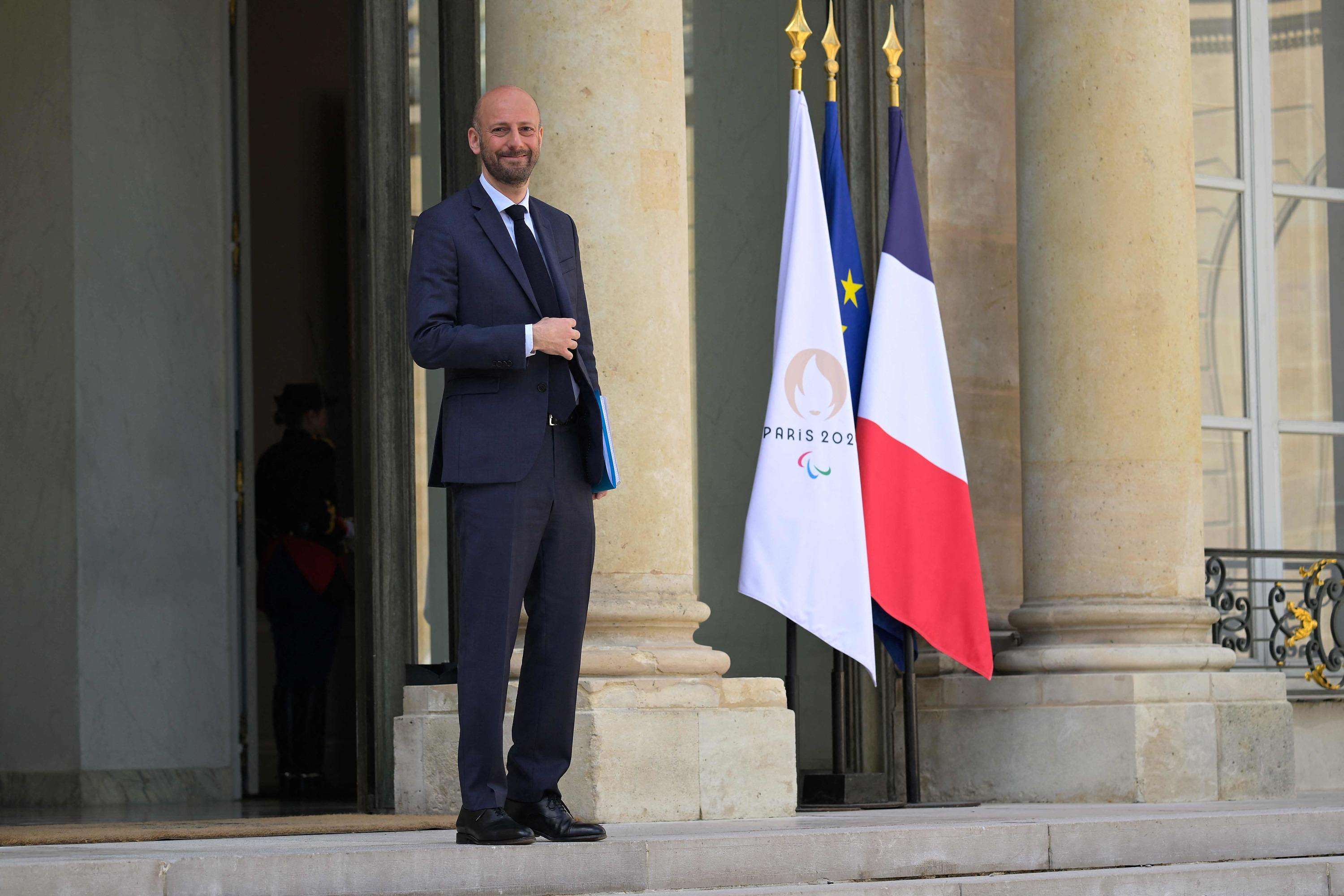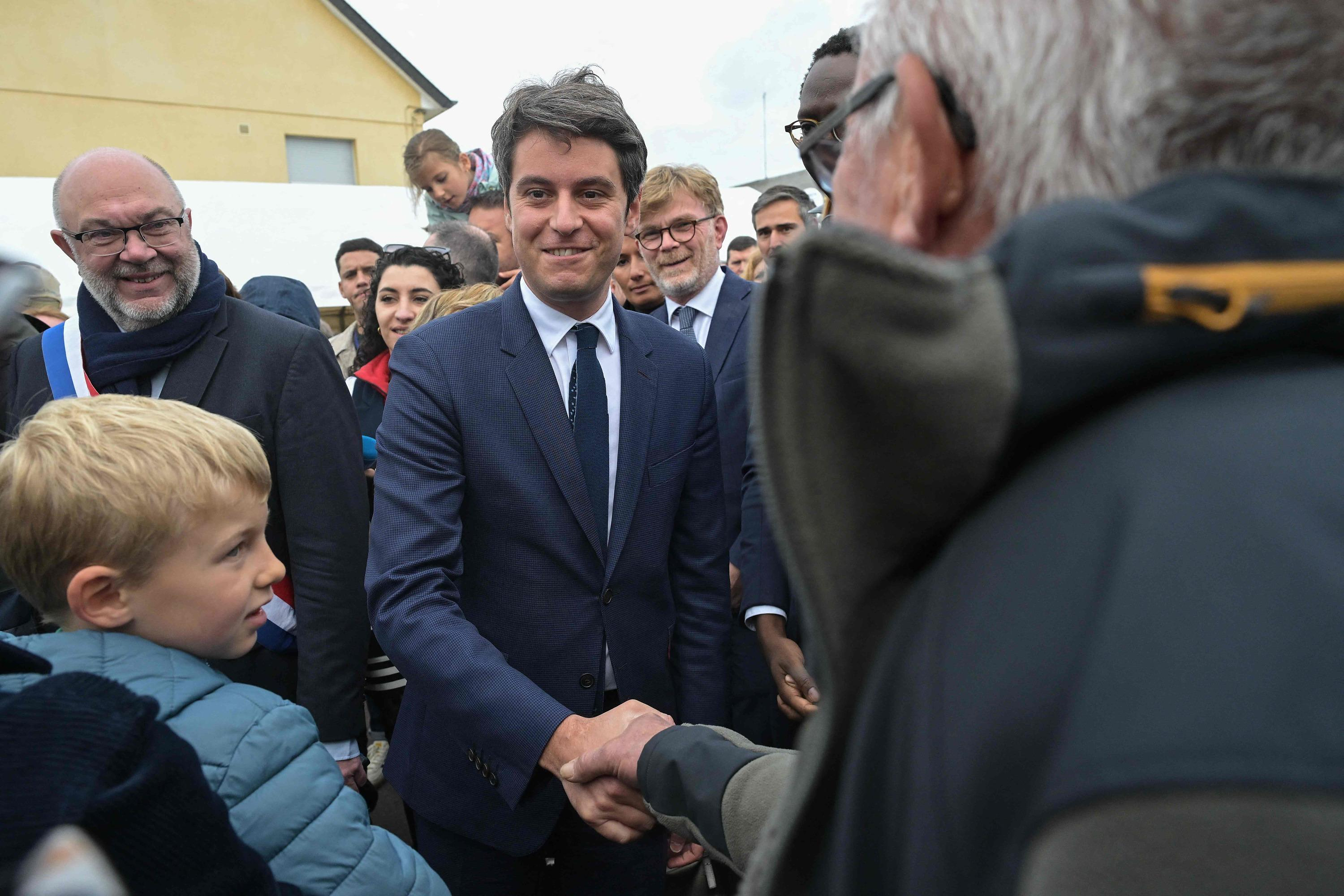Space has ceased to be the preserve of governments and their large space agencies or defense ministries and has been opened up to smaller companies thanks to smaller, faster and cheaper systems, ranging from mini-satellites (between 100 and 500 kilos in weight ) to picosatellites (less than one kilo). It is what they call the New Space, as opposed to the Old Space, dominated by public actors and large satellites.
These small artificial satellites have democratized space and have discovered, with the application of technologies such as the IoT, endless applications for very terrestrial sectors, such as agriculture, or marine, such as fishing or aquaculture.
Spain and Portugal, together with the European Space Agency, promote the Atlantic Constellation. It consists of a constellation of 16 microsatellites - eight for each country weighing between 20 and 30 kilos each - that will be launched into space with the aspiration that they offer images every three hours, something essential, for example, for fire fighting. The European Copernicus observation system offers images every three or five days, which makes it difficult to fight effectively against fire or red tides (toxic algae that attack crops and marine beings).
Miguel Belló, commissioner for the Aerospace Department in which the project is framed, has assured that South Africa, the United Kingdom, Mexico, Brazil or Norway have shown their interest in joining the Atlantic Constellation. "If we are four or six countries, we will be able to have 30-minute visits in many areas of the world," he explained during the second edition of New Space Spain 2022, held in Vigo and organized by Alén Space, a spin-off from the University of Vigo that launched in 2012 the Xatcobeo, the first Spanish nanosatellite.
The Atlántica satellites will carry cameras, IoT or AIS sensors. "It won't be a tsunami detection system, but it will be a test to see if we can have it," he said.
Among the projects, a launcher for small satellites is also underway, which, although there are companies specialized in it, such as PLD Space, will be its own and "will provide autonomy for loads in flight"; or a geostationary quantum key distribution mission with the European Space Agency. And as for the Spanish Space Agency, which, he said, will involve all ministries and the industrial value chain to encourage private investment, the Council of Ministers is expected to announce the city that will host its headquarters at the end of this month of November.
The message from the constellation of companies dedicated to New Space is clear: public and private funding is lacking. "We should all be receiving proposals from the Next Generation funds", lamented Jaume Sanpera, CEO and founder of Sateliot, who also assured that "big capital goes to real estate".
FOSSA, for example, has raised more than one million euros since its foundation and will now open a round to raise another 10 million: "It is little in relation to what a constellation costs, that is why many Spanish companies go to the United States", said Julián Fernández, CEO and co-founder of FOSSA Systems.
Francisco Vilhena, CEO of Geosat, recognized the difficulty of the Atlantic Constellation project because it knew how to operate in two very different institutional frameworks (that of Spain and that of Portugal, where the reins of the Nex Generation are held by a public-private consortium). "We have to take the lead and coordinate." As the projects have a term until 2025 for their development, Vilhena considered that "we must use the technology we have and take advantage of the fact that SMEs are more creative and agile. Innovation for satellites will have to be developed from the year 2025" .
In his opinion, another critical point, in addition to financing, is talent: "It's not just about economic conditions, but about the challenge you pose to them."
"

 B:SM will break its investment record this year with 62 million euros
B:SM will break its investment record this year with 62 million euros War in Ukraine: when kyiv attacks Russia with inflatable balloons loaded with explosives
War in Ukraine: when kyiv attacks Russia with inflatable balloons loaded with explosives United States: divided on the question of presidential immunity, the Supreme Court offers respite to Trump
United States: divided on the question of presidential immunity, the Supreme Court offers respite to Trump Maurizio Molinari: “the Scurati affair, a European injury”
Maurizio Molinari: “the Scurati affair, a European injury” Beware of the three main sources of poisoning in children
Beware of the three main sources of poisoning in children First three cases of “native” cholera confirmed in Mayotte
First three cases of “native” cholera confirmed in Mayotte Meningitis: compulsory vaccination for babies will be extended in 2025
Meningitis: compulsory vaccination for babies will be extended in 2025 Spain is the country in the European Union with the most overqualified workers for their jobs
Spain is the country in the European Union with the most overqualified workers for their jobs In the United States, a Boeing 767 loses its emergency slide shortly after takeoff
In the United States, a Boeing 767 loses its emergency slide shortly after takeoff The A13 motorway will not reopen on May 1
The A13 motorway will not reopen on May 1 More than 1,500 items for less than 1 euro: the Dutch discounter Action opens a third store in Paris
More than 1,500 items for less than 1 euro: the Dutch discounter Action opens a third store in Paris 100 million euros in loans, water storage, Ecophyto plan… New measures from the executive towards farmers
100 million euros in loans, water storage, Ecophyto plan… New measures from the executive towards farmers New York justice returns 30 works of art looted from Cambodia and Indonesia
New York justice returns 30 works of art looted from Cambodia and Indonesia Les Galons de la BD dedicates War Photographers, a virtuoso album on the Spanish War
Les Galons de la BD dedicates War Photographers, a virtuoso album on the Spanish War Theater: Kevin, or the example of an academic failure
Theater: Kevin, or the example of an academic failure The eye of the INA: Jean Carmet, the thirst for life of a great actor
The eye of the INA: Jean Carmet, the thirst for life of a great actor Skoda Kodiaq 2024: a 'beast' plug-in hybrid SUV
Skoda Kodiaq 2024: a 'beast' plug-in hybrid SUV Tesla launches a new Model Y with 600 km of autonomy at a "more accessible price"
Tesla launches a new Model Y with 600 km of autonomy at a "more accessible price" The 10 best-selling cars in March 2024 in Spain: sales fall due to Easter
The 10 best-selling cars in March 2024 in Spain: sales fall due to Easter A private jet company buys more than 100 flying cars
A private jet company buys more than 100 flying cars This is how housing prices have changed in Spain in the last decade
This is how housing prices have changed in Spain in the last decade The home mortgage firm drops 10% in January and interest soars to 3.46%
The home mortgage firm drops 10% in January and interest soars to 3.46% The jewel of the Rocío de Nagüeles urbanization: a dream villa in Marbella
The jewel of the Rocío de Nagüeles urbanization: a dream villa in Marbella Rental prices grow by 7.3% in February: where does it go up and where does it go down?
Rental prices grow by 7.3% in February: where does it go up and where does it go down? Even on a mission for NATO, the Charles-de-Gaulle remains under French control, Lecornu responds to Mélenchon
Even on a mission for NATO, the Charles-de-Gaulle remains under French control, Lecornu responds to Mélenchon “Deadly Europe”, “economic decline”, immigration… What to remember from Emmanuel Macron’s speech at the Sorbonne
“Deadly Europe”, “economic decline”, immigration… What to remember from Emmanuel Macron’s speech at the Sorbonne Sale of Biogaran: The Republicans write to Emmanuel Macron
Sale of Biogaran: The Republicans write to Emmanuel Macron Europeans: “All those who claim that we don’t need Europe are liars”, criticizes Bayrou
Europeans: “All those who claim that we don’t need Europe are liars”, criticizes Bayrou These French cities that will boycott the World Cup in Qatar
These French cities that will boycott the World Cup in Qatar Tennis: “I need to regain confidence in my body,” explains Rafael Nadal
Tennis: “I need to regain confidence in my body,” explains Rafael Nadal NBA: Orlando returns to level with Cleveland in the 1st round of the play-offs
NBA: Orlando returns to level with Cleveland in the 1st round of the play-offs Tennis: Iga Swiatek in the round of 16 at full speed
Tennis: Iga Swiatek in the round of 16 at full speed “It was exceptional here in Chaban-Delmas”: Escudero looks back on the excitement around France-England
“It was exceptional here in Chaban-Delmas”: Escudero looks back on the excitement around France-England

















